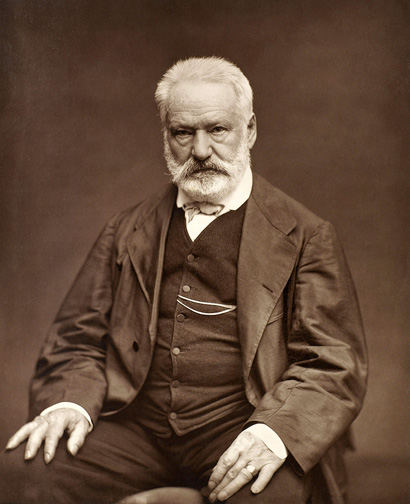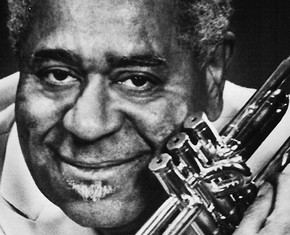The views expressed in our content reflect individual perspectives and do not represent the authoritative views of the Baha'i Faith.
Most people agree that stealing is wrong. But would you steal a loaf of bread to feed a starving family?
That’s the ethical and philosophical question the great French writer Victor Hugo asked in his monumental novel Les Miserables. Certainly you’ve seen the play or the film versions, or maybe you’ve even read the 1400-page book. Literally billions of people worldwide have been deeply affected by this great work of art. If you’re not one of them yet, here’s a quick summary: ex-con Jean Valjean, released from a 19-year prison term for stealing a loaf of bread to feed his sister’s children, tries to turn his life around and do good for others while escaping the relentless pursuit of the rule-bound policeman Javert.
Hugo’s novel caused quite a stir when it first appeared in the 1860’s; during the same period when the Baha’i Faith began. Les Miserables challenged conventional thinking by questioning the cruelty of the absolute rule of law practiced by European aristocracy and religious authorities. Jean Valjean advocated for democracy, humanism, merciful justice and the common man, and elevated those values above Javert’s harsh and absolutist approach, which exemplified the religious and legal principles practiced at the time by most of the world’s despotic governments. Les Miserables means “The Poor Ones,” and it famously showed the terrible plight of the Parisian underclass, advocating a humane and understanding approach to solving social problems.
The story of Les Miserables has tremendous resonance for Baha’is. Not only does it focus on many Baha’i-related principles—love for all people, the unity of humanity, the futility of war, the elimination of the extremes of poverty and wealth—it also covers one central theme that the Baha’i teachings emphasize: Relativity.
No, not Einstein’s Theory of Relativity–instead, Les Miserables famously asks us A Big Question: Is truth A.) absolute or B.) relative?
Up until the middle of the 19th Century, most people probably would have answered A. Before that time religious and governmental authorities had an iron grip on power and absolute authority over their subjects. Hidebound rules of law and conduct proliferated. Dissent or disagreement typically received a harsh and even deadly response. People believed, for the most part, that the inflexibility of absolute truth made authoritarian rule a necessity.
Then, suddenly, a colossal change occurred. The Baha’i revelation arrived, bringing with it a completely new set of assumptions about the nature of truth. A fresh view of science emerged, generated by the advances of the Enlightenment and thinkers like Darwin. The age of modernity, in all its disruptive glory, started to bloom. And in the midst of all this change, rather than the old absolutist approach, Baha’u’llah said that truth itself is not absolute but relative:
The fundamental principle enunciated by Baha’u’llah … is that religious truth is not absolute but relative, that Divine Revelation is a continuous and progressive process, that all the great religions of the world are divine in origin, that their basic principles are in complete harmony, that their aims and purposes are one and the same, that their teachings are but facets of one truth, that their functions are complementary, that they differ only in the nonessential aspects of their doctrines, and that their missions represent successive stages in the spiritual evolution of human society…. – Shoghi Effendi, The Promised Day is Come, p. v.
Not only did Baha’u’llah give us a new way to look at the evolution of truth itself, his teachings elucidated a completely revolutionary way of seeing the evolution of humanity:
…His mission is to proclaim that the ages of the infancy and of the childhood of the human race are past, that the convulsions associated with the present stage of its adolescence are slowly and painfully preparing it to attain the stage of manhood, and are heralding the approach of that Age of Ages when swords will be beaten into plowshares, when the Kingdom promised by Jesus Christ will have been established, and the peace of the planet definitely and permanently ensured. Nor does Baha’u’llah claim finality for His own Revelation, but rather stipulates that a fuller measure of the truth He has been commissioned by the Almighty to vouchsafe to humanity, at so critical a juncture in its fortunes, must needs be disclosed at future stages in the constant and limitless evolution of mankind. – ibid.
In the same way, the Baha’i teachings bring a vision of new global society designed to banish absolutism and despotism from the face of the Earth:
The Baha’i Faith upholds the unity of God, recognizes the unity of His Prophets, and inculcates the principle of the oneness and wholeness of the entire human race. It proclaims the necessity and the inevitability of the unification of mankind, asserts that it is gradually approaching, and claims that nothing short of the transmuting spirit of God, working through His chosen Mouthpiece in this day, can ultimately succeed in bringing it about. It, moreover, enjoins upon its followers the primary duty of an unfettered search after truth, condemns all manner of prejudice and superstition, declares the purpose of religion to be the promotion of amity and concord, proclaims its essential harmony with science, and recognizes it as the foremost agency for the pacification and the orderly progress of human society…. – ibid, pp. v-vi.
I wish Victor Hugo and his Poor Ones could have lived to see this.
You May Also Like
Comments


















I think you have expanded the meaning of the phrase "relativity of religious truth" far beyond what Shoghi Effendi was writing about. In your article you contrast absolute political authority with democracy and humanism; and hidebound absolutist religious and political rules with relativity of truth. Then, I feel, you blur a line, and without justification, and imply that this Baha'i principle of the relativity of religious truth also applies to moral matters (Not immorality; Victor Hugo-style moral relativism that helps the poor). But overall, I think you've taken a phrase that was used in a specific sense - that the Prophet in each age is not bound by the revelations of the past, and customizes the nonessential aspects of His revelation to remedy the social and spiritual illnesses of His day - and presented it as a far broader philosophical and ethical statement, as shown in the title you chose, "All truth is relative." I think there are light years of difference between Shoghi Effendi's statements that the laws and teachings revealed by the Prophet are relative to the needs of that age, and saying that "all truth" is relative. Is "all truth is relative" one of the major themes of the Book of Certitude? Is it reflected in the architecture of the Baha'i Houses of Worship?
Further by introducing connotations of moral relativism, you erase the distinction between Shoghi Effendi's statement that the Prophet does what He wills in each age, and connotations of moral relativism, connotations that are entirely absent from Shoghi Effendi's pronouncements on the relativity of religious truth. In striving to write about the universal spirit of Baha'u'llah's revelation, I think you also unwittingly open the door to accusations that the Baha'i Faith's fundamental principle is that everything, including morality, is relative.